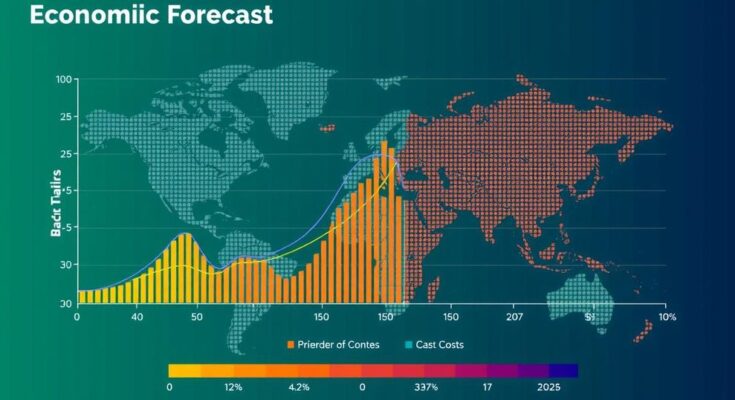Farmers fear that Trump’s proposed tariffs could lead to retaliatory measures, crippling U.S. agriculture and causing inflation. With Trump using aggressive trade policies as key campaign points, economists warn of repeating the mistakes of the past that could destabilize the economy. The potential harm to both farmers and consumers presents a complex economic dilemma leading into the upcoming election.
In a landscape of ripe cornfields and expansive soybean farms, Iowa farmer Bob Hemesath watches the shifting winds of politics with trepidation. As Donald Trump eyes a return to power, his vow to impose tariffs of up to 60% on Chinese goods and at least 10% on all imports looms like a dark cloud poised to unleash turmoil. Hemesath fears echoes of the trade war that rattled U.S. agriculture not long ago, warning that such measures could trigger retaliatory tariffs that would cripple American farmers’ access to vital markets, potentially leading to irreversible losses. “When we start putting tariffs on others, usually the retaliatory tariffs end up on American agricultural products,” he cautions, emphasizing the precarious balance of international trade. Trump’s recent speeches come with bold promises, including 25% tariffs on Mexican goods, further rattling an already tense trade environment. Economists voice concerns that these policies threaten to plunge the U.S. back into an era reminiscent of the 1930s, where high tariffs stifled trade and ignited economic turmoil. Such drastic actions risk stalling the American economy’s recovery and igniting inflationary pressures. The ongoing debate echoes the Smoot-Hawley Tariff Act of 1930, which many believe exacerbated the Great Depression’s impacts. Amidst this economic maelstrom, studies from the National Corn Growers Association and American Soybean Association warn that a new trade war could deepen U.S. crop export losses and further devalue domestic prices. Trump, however, positions his tariffs as a way to revitalize U.S. manufacturing and generate revenue. Nonetheless, the ailments they may impose—inflated consumer prices, disrupted supply chains, and retaliatory measures from trading partners—paint a bleak picture of the consequences ahead. As Trump vies for the presidency, the looming tariffs hang like a sword of Damocles over U.S. families, with analyses predicting potential annual losses of thousands of dollars per household. Recent estimates suggest Trump’s tariffs could push consumer prices up by as much as 5.1%, a sobering reminder of the delicate weave of economics and everyday life. Critics, including Vice President Kamala Harris, denounce these plans as a covert national sales tax that will unduly burden American families and undermine economic security. Facing an increasingly polarized political battlefield, the next U.S. administration will confront a tangled web of tariff decisions that could dictate agricultural prosperity and global trade relations for years to come. With determination, Hemesath and fellow farmers brace themselves for a turbulent future, hoping for a shift in policy that prioritizes resilience over retaliation and sustains the American agricultural spirit amid challenges.
The article examines the potential economic fallout of Donald Trump’s promised tariffs, particularly on agriculture. Farmers, especially in Iowa, are concerned that high tariffs will lead to retaliatory actions against U.S. agricultural products, resulting in market share loss and reduced exports. The economists argue that these tariffs have historical precedents that led to trade collapses, echoing fears of inflation and economic volatility propagated by lofty tariff rates. As trade dynamics shift, both support and critique of these plans emerge, with implications for everyday American consumers and farmers.
The looming threat of significant tariffs under Trump’s potential presidency raises concerns that could ripple throughout the economy, particularly affecting U.S. agriculture. Farmers like Bob Hemesath voice their fears over disrupted markets and retaliatory trade measures, predicting dire consequences reminiscent of past economic downturns. While Trump champions these tariffs as a protectionist measure, the broader implications on inflation, consumer prices, and the stability of international trade remain deeply polarizing and uncertain. As the electoral outcome nears, the future of U.S. trade policy hangs precariously in balance.
Original Source: www.dailysabah.com



